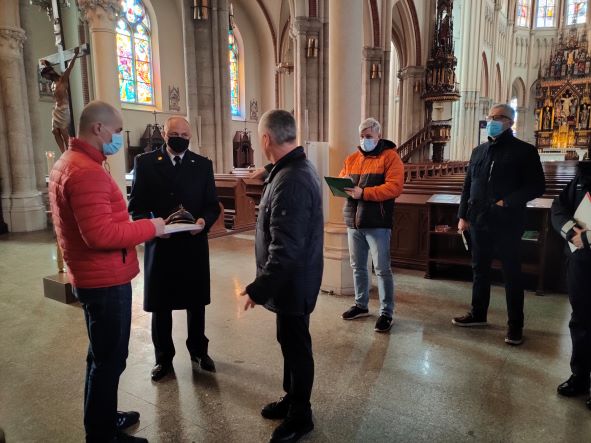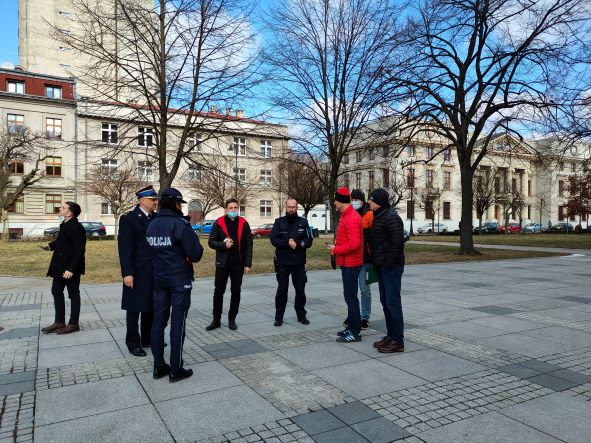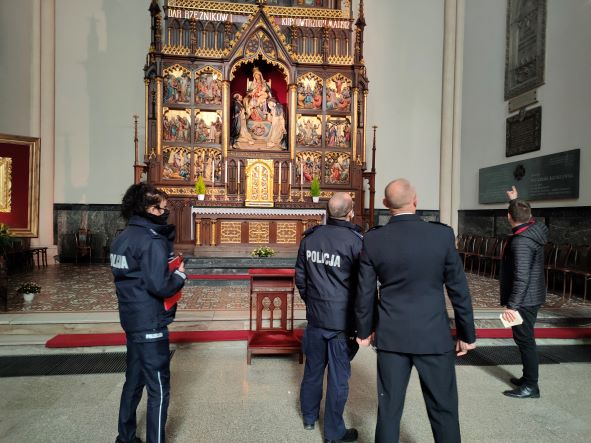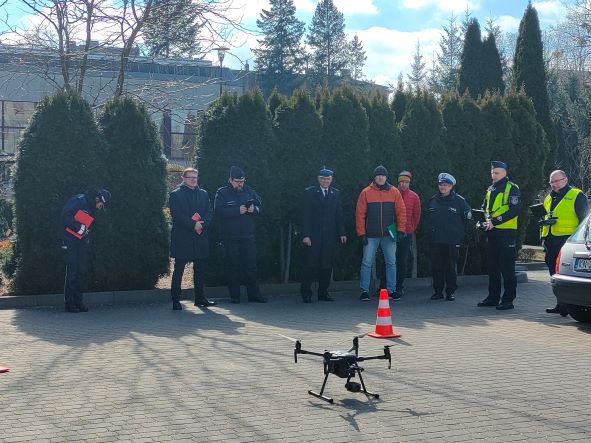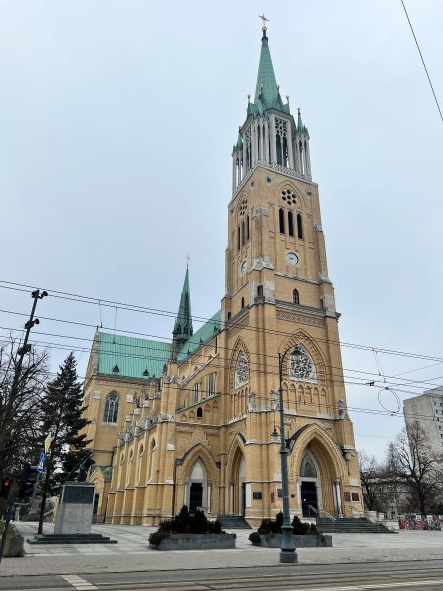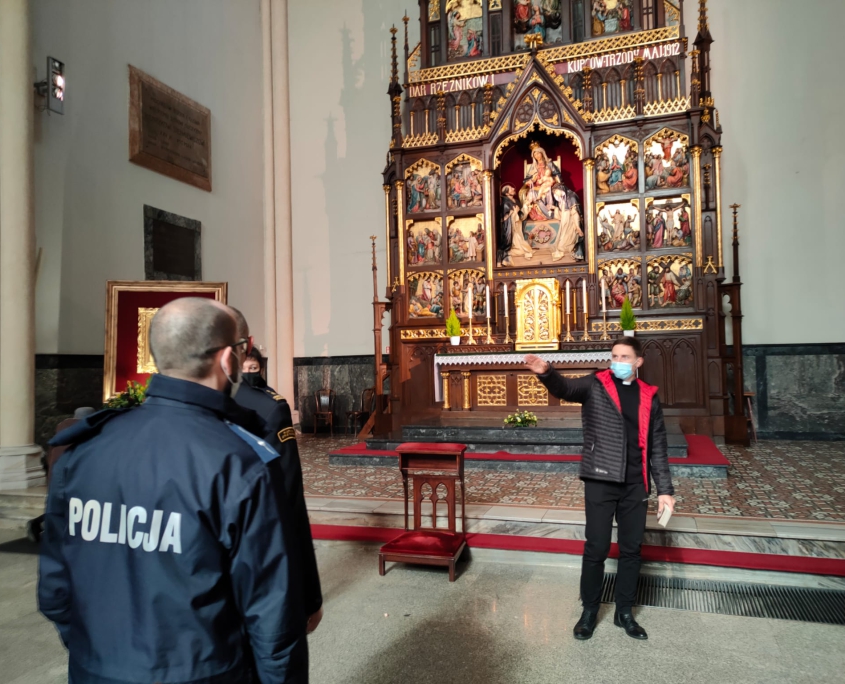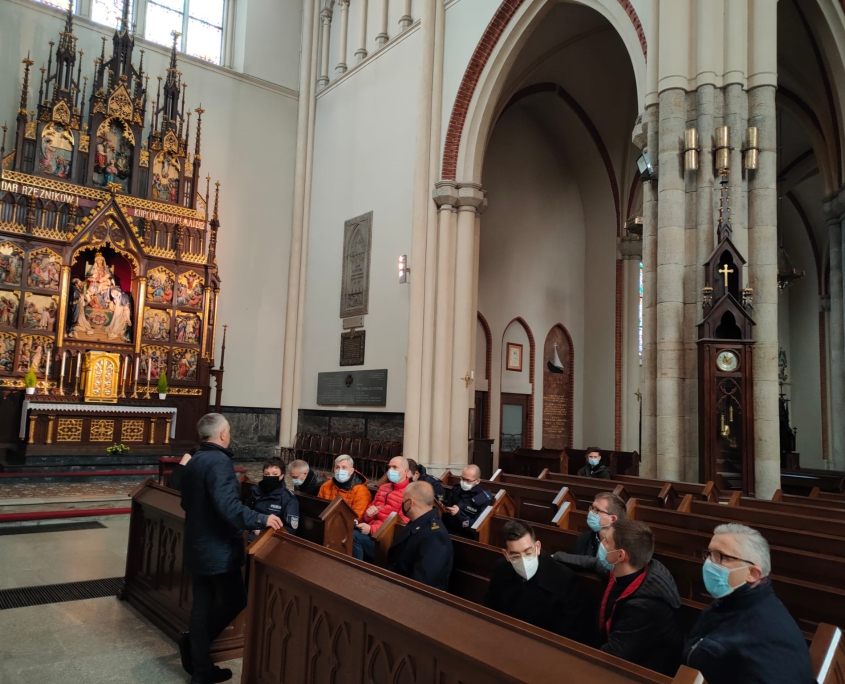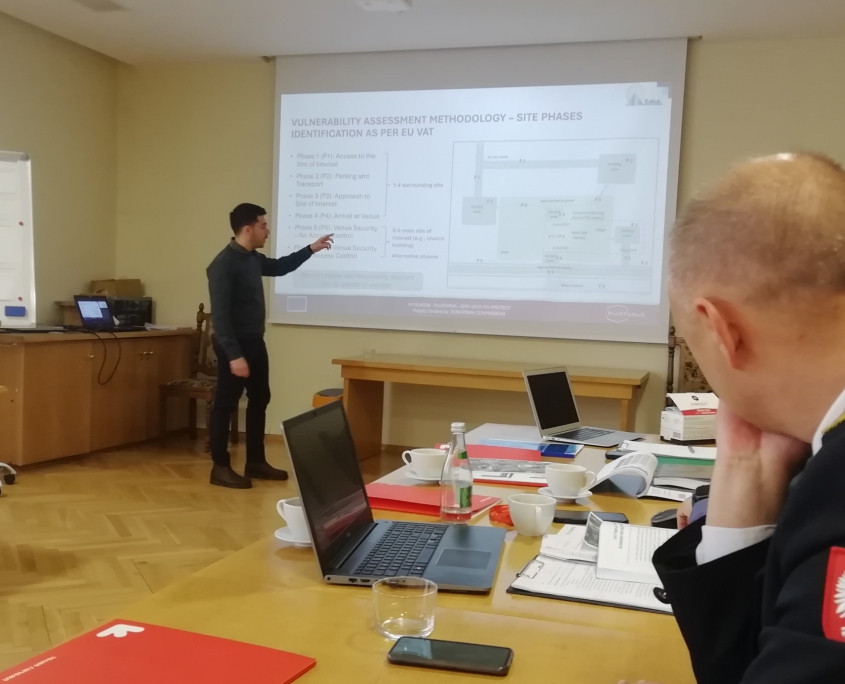Workshops in the Archdiocese of Łódź
Vulnerability Assessment Workshop in Lodz, Poland 8th-9th March 2022
The second Vulnerability Assessment Workshop was organized by the Archdiocese of Lodz, University of Lodz and the Provincial Police Headquarters in Lodz on 8-9.03.2022 in the premises of the Archdiocese and facilitated by KEMEA within the framework of WP2. The physical workshop was preceded by an online workshop held on 3rd March where participants were introduced to the project vulnerability assessment methodology and tools based on EU Vulnerability Assessment Tool/Checklist and EU Quick Guide. In order to have a wider perspective participants came from different backgrounds, starting from experts on the protection of public places, terrorist threats, explosives or CBRN threats, police officers, fire-fighter and representatives of local church.
During the workshop the discussions among experts focused on modern methods and security measures to protect places of worship from terrorist attacks. This was facilitated by the exchange of knowledge and experience among the participants in focused on the applicability of vulnerability assessment methodology in religious sites. The discussion on reducing the vulnerability of religious facilities to terrorist attacks was based on information received from the staff of the visited church.
After the short introduction to the issues of the workshop and presentation of the main objectives and the scope of the planned work, participants conducted a site inspection at the main church of the Archdiocese of Lodz.
During the inspection of the site, the main focus was to identify possible gaps in the security system. The inspection focused, among other things, on the elements of the infrastructure located in the immediate vicinity of the building, the system of entrances and exits to the building, the CCTV and fire protection systems with it’s own security procedures. During a conversation with the parish priest, experts from various fields of security asked many detailed questions which were helpful at a later stage of the workshop.
In order to assess the state of security in the area of the church, a police drone was used and its operation was demonstrated by police officers from the Provincial Police Headquarters in Lodz. After the visit, a short meeting with the local media took place, where the experts presented the main assumptions and overarching objectives of the project.
The next stage of the work was a meeting in the seminary building, where we used the Vulnerability Assessment Tool to asses the site of concern. Based on identified vulnerabilities, the likelihood and consequences of various threats were analysed to estimate the level of risks. This was accompanied by a discussion on practices in protecting the facility of interest as well as other religious facilities before and during high profile events, the challenges involved, and potential measures that could enhance the protection of said religious facility. Finally, the participants formulated conclusions and suggestions applicable to further development of the assessment tools and improvement of the security in the Basilica.
The workshop in Lodz was conducted within activity on Vulnerability assessment – including in-site visits with workshops as part of WP2 – Vulnerability Assessment & Needs Analysis of Religious sites. The activity entails the conduct of on-site vulnerability assessments on selected religious sites proposed by the religious organisations participating in ProSPeReS. Three Vulnerability Assessment Workshops are scheduled in Ioannina (Greece), Lodz (Poland) and Warsaw (Poland). As the result the reports on the each workshop and the aggregate report will be prepared to collect feedback on the assessment methodology, identified common gaps, challenges and recommendations to the protection measures addressed to religious sites.

